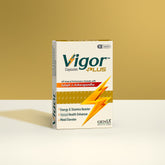Female Infertility: Causes and Treatment
Female infertility is defined as the inability to conceive a child. Specifically, it refers to the failure to achieve pregnancy after one year of attempting, or after six months if the woman is over 35 years old. This condition is relatively common, affecting approximately 15 percent of couples globally, with a higher incidence observed in older women. This information is intended for couples seeking to grow their families but facing challenges in conception. Various treatment options for female infertility are available that may provide assistance.
How Does Age Influence Fertility?
As couples increasingly postpone pregnancy until their 30s or 40s, age has become a critical factor. A woman's likelihood of conceiving diminishes significantly with age due to several reasons:
A reduction in the total number of eggs.
The presence of chromosomal abnormalities in many eggs.
A heightened risk of various health issues.
Sadly, the primary indicator of female infertility may simply be the inability to conceive, although some women may also encounter symptoms, such as irregular or absent menstrual cycles or those associated with hormonal imbalances.
Factors Contributing to Female Infertility Risk!
Numerous factors can lead to female infertility, jeopardizing the possibility of parenthood. These factors may stem from genetic predispositions, lifestyle decisions, and other influences. Key contributors may include:
- Age
- Hormone dysfunction that prevents ovulation
- Abnormal menstrual cycle
- Obesity
- Being underweight
- Endometriosis
- Structural problems with the fallopian tubes or cavity of uterus.
- Uterine fibroids
- Cysts
- Tumors
- Autoimmune disorders (lupus, rheumatoid arthritis, Hashimoto’s disease, overactive thyroid )
- Sexually transmitted infections (STIs)
- Polycystic Ovary Syndrome (PCOS)
- Primary Ovarian Insufficiency (POI)
- Smoking
- Substance use (heavy drinking)
- DES syndrome
- A past ectopic (tubal) pregnancy
Tests and Diagnosis for Female Infertility
Initially, your physician will inquire about your sexual practices to identify potential causes of female infertility.
A woman's fertility is contingent upon a healthy reserve of eggs within the ovaries. The reproductive system must effectively transport the eggs into the fallopian tubes, where they can encounter sperm for fertilization. Furthermore, the fertilized egg or embryo must successfully navigate to the uterus and implant itself into the uterine lining.
Consequently, infertility assessments and diagnostics are designed to eliminate the possibility of dysfunction in any of these critical processes.
These assessments may include:
1. Ovulation Testing - This blood test evaluates hormone levels to ascertain whether ovulation is occurring.
2. Ovarian Reserve Testing - This examination estimates the number of eggs available in the ovaries at a specific age, which is directly linked to the likelihood of conceiving naturally or through assisted reproductive techniques.
3. Hysterosalpingography - This diagnostic procedure assesses the state of the uterus and fallopian tubes to identify any blockages or structural abnormalities. Following the injection of a contrast agent, an X-ray is performed to verify the normal size and shape of the uterus and to observe whether fluid exits the fallopian tubes.
4. Imaging Tests - A pelvic ultrasound may be utilized to detect any uterine or ovarian disorders. Occasionally, a sonohysterography is conducted to inspect the interior of the uterus, which is not visible through a standard ultrasound. This method employs sound waves to visualize the uterine cavity.
5. Additional Hormone Tests - Other evaluations may include the measurement of ovulatory hormones and pituitary hormones that govern reproductive functions.
Treatment Options for Female Infertility
Based on individual health conditions and requirements, certain women may require only one or two therapies to enhance fertility, while others might necessitate a combination of various treatment types to achieve a successful pregnancy.
Stimulating Ovulation with Fertility Drugs
Women facing fertility challenges related to ovulation may benefit from fertility medications. These drugs mimic or affect natural hormones and are quite effective in stimulating or regulating ovulation. Numerous fertility medications are available; it is advisable to consult your fertility specialist to explore the advantages and potential risks associated with each option.
Surgical Procedures Aimed at Restoring Fertility
In cases of obstruction in the fallopian tubes, surgical intervention may be employed to remove the blockages, facilitating the passage of eggs and enhancing the likelihood of fertilization. Uterine conditions, including uterine septum, endometrial polyps, intrauterine scar tissue, and certain fibroids, can be effectively addressed through hysteroscopic surgery. For larger fibroids, endometriosis, and pelvic adhesions, laparoscopic surgery has demonstrated efficacy. This procedure involves making a small incision in the abdomen, through which a laparoscope—a slender, metal microscope—is introduced via an incision near the navel to minimize scarring. The surgery aims to clear obstructed tubes, excise cysts (fluid-filled sacs that may develop in the ovaries), and restore fertility.
Is it possible to prevent female infertility?
In general, female infertility is often unavoidable. Nevertheless, women can adopt specific measures to enhance their likelihood of conception. For instance, eliminating lifestyle choices such as alcohol consumption and smoking can positively impact fertility. Additionally, achieving a healthy weight and engaging in regular physical activity can further support reproductive health. It is advisable to consult with a fertility specialist to explore other potential risk factors that may influence female fertility.
How to deal with infertility?
Dealing with infertility can be a source of significant stress due to numerous uncertainties. This experience can be emotionally taxing for couples. Furthermore, heightened stress levels may contribute to an increased risk of infertility, making effective stress management crucial.
Here are several ways to manage infertility.Prepare yourself adequately - Undergoing fertility treatment can be a source of significant stress. It requires a substantial commitment and entails numerous tests, procedures, and treatments, all of which can contribute to anxiety. Consult your physician to ensure that each step is clearly explained, and equip yourself for the journey ahead.
Engage in open dialogue with your partner - Fertility treatments can incur significant costs and require considerable time. It is essential to converse about the treatments you are prepared to pursue and to consider the effects these decisions will have on your life.
Explore different options - It is common to feel disheartened when a particular treatment fails. However, there are numerous alternatives available, such as donor eggs, gestational carriers, and other possibilities. Consult your physician to determine the most suitable treatments for your situation.
Obtain support and guidance - Consult with counselors for assistance prior to and following treatment to facilitate the emotional journey.






